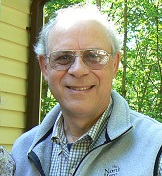 Everett Bartlett
Everett Bartlett
During the early 1970s, Senator Walter Mondale launched a crusade to address the plight of low-income children.In 1974, Mondale finally succeeded in persuading Congress to enact the Child Abuse Prevention and Treatment Act. CAPTA’s definition of child abuse seems reasonable enough:
“Any recent act or failure to act on the part of a parent or caretaker which results in death, serious physical or emotional harm, sexual abuse or exploitation; or an act or failure to act, which presents an imminent risk of serious harm.”
In rapid succession, states began to pass laws that expanded on this definition. So if your child exhibits “an observable or substantial change in in behavior, emotional response, or cognition,” you are likely to be found guilty of emotional abuse. in 25 states, if you fail to have your child properly educated, that could well be considered a form of “neglect.” [Link] Any of these scenarios will likely trigger a child welfare investigation. But in the vast majority of cases, the investigation does not find anything amiss. The Health and Human Services’ report, Child Maltreatment reveals:
“For FFY 2017, the data show approximately 3.5 million children are the subjects of at least one report. A total of 17.0 percent of children are classified as victims with dispositions of substantiated (16.3%) and indicated (0.7%). The remaining children (83.0%) are not determined to be victims of maltreatment or received an alternative response.” [emphasis added] [Link] Got that? Only one in six investigations turns up a problem. In the other five out of six cases, there was no child abuse.Case closed.
In many states, the definition of child abuse has been expanded so that a child who merely observes domestic violence between his or her parents is deemed to be a victim of abuse. This may become the justification for removing the child from the family home, pushing the child into the highly dysfunctional child welfare system. [Link] In one case, an abused woman’s supposedly confidential statements were passed along to the state child abuse agency. Shortly afterwards, the agency ordered the daughter to be removed from the home. The daughter, who had never suffered any physical abuse, was not returned home until 13 months later. [Link] Some persons take advantage of thesewobbly definitions to wreak legal havoc, making accusations of child abuse to enhance their odds of winning child custody. According to a survey conducted by SAVE, 17% of persons know a person who has been the target of a falsely allegation of abuse. Of these persons, 66% had been falsely accused of child abuse. [Link] The National Child Abuse Defense and Resource Center is a non-profit group working to preserve the rights of the falsely accused. The group explains,
“In child abuse cases, there is the continued working hypothesis among professionals charged with protecting children that if the allegation is made, abuse must have occurred and that the accused person must have perpetrated the abuse. Further, it becomes the responsibility of the accused to prove otherwise.” [Link] In other words, the presumption of innocence flies out the window, causing endless grief for the accused.
It gets worse.
Definitions of child abuse are now being manipulated to promote political agendas. In Virginia, the House Health, Welfare, and Institutions Committee is currently debating HB 580, a bill that would expand the current definition of an “abused or neglected child” to include a child whose parent “allows to be created or inflicted upon such child a physical or mental injury on the basis of the child’s gender identity or sexual orientation.” [Link] So if a Virginia parent were to object to a public school promoting transgender lifestyles or sexual practices, this father or mother could well be branded as a child abuser.
Such nefarious tactics are used by proponents of what has been called the Victim-Industrial Complex.
Child abuse is a problem in our country. But engaging in definitional gymnastics and subordinating the issue to advance political agendas will only serve to discredit the important work of legitimate abuse reduction programs, weaken families, and harm children.
[Read: Taken Into Custody: The war against fathers, marriage, and the family]
[BIO: Edward Bartlett, PhD, an Army veteran, worked as a professor at the University of Alabama-Birmingham and for 15 years as a research manager in the federal Department of Health and Human Services.]
© 2020 Edward Bartlett – All Rights Reserved
E-Mail Edward Bartlett: Edwardbartlett52@gmail.com





